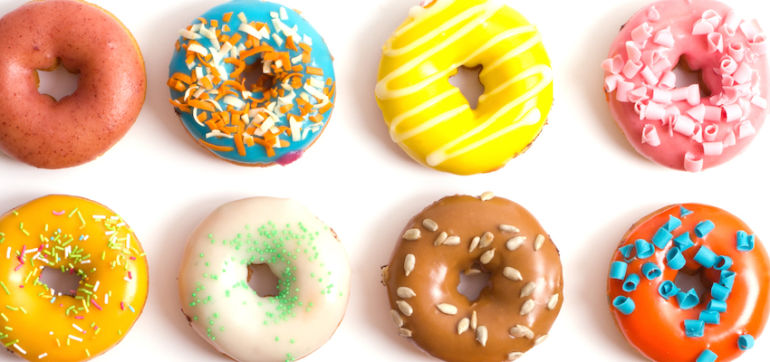Committed To Losing Weight
If you were committed to losing weight, here is what you would have to do:
1. Establish very tiny, uniquely small, and easily reachable fitness goals that you can actually check off each day and benefit from almost immediately.
2. Redirect and power up your intellect and mind-set, by learning at least one brand new fat-loss fact daily.
3. Change the way you conduct your physical activity, aerobic, endurance, and strength movements by analyzing the reasons "why" these movements are supposed to work for you.
Unless you already possess formal educational training in the sciences of biomechanics, human anatomy, and motor development... there is much you do NOT know about your body composition.
At this point, the one and only thing you can be absolutely SURE of, is that you either: a) love the way you are and want to keep doing the same thing you have been doing, in order to stay the way you are now; or, b) are not presently satisfied with the condition of your body and possess a strong desire to change yourself for the better.
The principles of life coaching mesh very nicely with wellness and fitness enhancement. Such a special and codependent bond exists between the two and, in such a way that you simply do yourself harm by separating them, or by not knowing that these two even coexist.
You can probably see, from your own life, that establishing or planning healthy and wise goals contributes to your overall peace, prosperity, enjoyment, and wellness. You likely already know that keeping yourself on the move and accomplishing even small tasks makes you feel and look better, even as a side result.
So, today, rather than listen to a lecture on fat-loss principles you have already heard, seen, or tried... let us look more deeply into the nature of having a healthy mind and body. If you were committed to losing weight, then you would have absolutely no choice but to master calorie consumption, for one.
Yet, how many even TRULY know what calorie consumption is? Even more tricky, is the total mastery of calorie balance, which happens when you consciously and intentionally make the foods you eat, perform the functions and go through the steps of metabolic processing... you can do this in such a way that the calorie you have left over at the end of each day equal FAR LESS than the calories you have eaten for that same day.
This is important, so do not skim or skip over it. Here is how you do it:
Go to any bed and bath store to get yourself a small, food scale. (FYI: the scale you use to weigh your body is much too bulky to pick up sensitive calorie measurements indicated by food.) So, get yourself a tiny scale specifically manufactured for measuring food weights.
Imprint this following fact deeply into your brain (you can do it right now)...
One ounce of virtually ANY solid food, will generally ALWAYS weigh twenty-eight grams.
As soon as you put this scientifically fundamental weight loss caloric fact into your mind, it is basically yours to keep, forever. In other words, simply knowing this fat-loss tidbit instantly eliminates the need for a calculator and/or complicated mathematical equations. Thus, you can conveniently free up your body and mind to work on losing weight, rather than bog yourself down with processing minute caloric details.
ONE OUNCE OF FOOD EQUALS 28 GRAMS.
Got it? Good, because part of your war against unwanted weight is already won.
Now, what can you do with the fact that one ounce of the food you eat weighs twenty-eight grams? Well, for one, you can eat almost anything you want... that is, you can combine several different TYPES of food into your weight loss arsenal because you will keep your daily total at a number you plan on accomplishing, using your own, advance planning strategy.
In other words, you may find out that you now are eating, for example, approximately 2,200 calories per day. If so, you can lose weight immediately, by chopping off a few extra peanuts... or a couple of extra drops of syrup on your pancakes... or that extra few ounces of soda at the lower half of the bottle or can.
At times, you may think that a few little calories here and there do not really matter. The actual truth is that calories matter because they contribute to a whole number that you reach each and every day. By the end of that particular day, your resulting calorie balance winds up as either a negative or a positive number. (Here, NEGATIVE is good because it means you are LOSING weight, and thus, accomplishing your intended goals.)
A POSITIVE calorie balance at the end of your day, unfortunately, means that in some great or even small way, you are GAINING weight. (FYI: in some cases, you can achieve or experience a NEUTRAL calorie balance, which means you are essentially making absolutely NO CHANGE to your current weight loss status.)
You can probably agree that, in the case of losing weight, achieving a NEGATIVE energy balance is where you want to be. By the way, do you notice the phrase ENERGY BALANCE provides an almost equal substitute for CALORIE BALANCE? Yes, you can use these two terms interchangeably and still maintain accuracy in your weight management endeavors.
Someday (hopefully sooner rather than later) you can combine the two mates for calorie balance and weight loss success, which are: Energy In, and Energy Out.
With the purchase of your small food weight scale, and knowing that 28 ounces equals one gram of calories consumed or burned off... you can easily surmise that, along with choosing a comfortable and convenient number for yourself, you can plot the body weight you wish to arrive at, almost exactly.
Here is why. If right now you are consuming 2,200 calories per day (as in the above example), cut your body weight instantly by doing exercises that throw calories back out again.
Exercise is the best way because it enhances your scientific ability to naturally differentiate between muscle, fat or carbohydrates that your body may need for basic sustenance and general health. With an aerobic exercise like walking, for example, you can stimulate your body enough to throw out about 8 to 12 calories per minute.
Look for a continuation of this article in COMMITTED TO LOSING WEIGHT, part two.
-
Should You Give Some Thought To Qsymia For Weight Loss?
Buy PhenTabz Qsymia in the past referred to as Qnexa the second w
-
Want The Easy Weight Loss Solution?
It is surprising how many people have it
-
Its Never Too Late To Get Back Into Health And Fitness
Hello people,At this time of the year many of you go on holiday, or ha
-
Creating Your Exercise Routine
There are many steps that you must take in order to create an effec
-
Misdiagnosis of zinc deficiency leads to copper deficiency
The human body requires essential minerals in order to perform
-
Why Diets DONT Work
One of the biggest scams ever successfully pulled on the American publ
- DON'T MISS
- Why Do Physicians Recommend High Protein Diets For Medical & Surgical Weight Loss Patients?
- The easiest method to Acquire Six Pack Abs
- Low Carb Diets -- How Much Protein Do You Need
- 7 Fun Activities To Try Before Summer Ends
- When Losing Weight Seems Hopeless
- The All You Can Eat Fresh Fruit & Veggie Weight Loss Diet
- Ladies, I Have Good News For You! You Dont Have To Diet.
- The Fat-Burning Power Of Green Tea
- The Truths About Fast Weight Loss And Other Benefits Through Self Hypnosis
- Healthy Diet to Lose Belly Fat Quick




